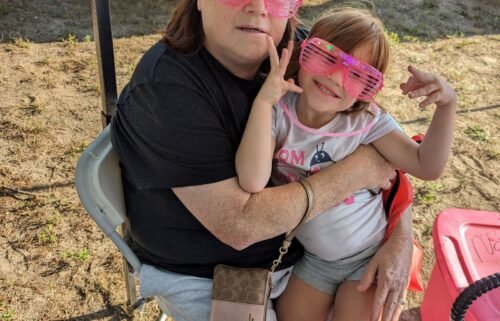Minneapolis doctor wipes away tears in describing Covid-19’s toll on hospital workers
Dr. Shirlee Xie took care of five patients with Covid-19 the last time she worked at her Minneapolis hospital.
One recovered and was discharged after a week-long stay in the hospital. Two patients, including a 41-year-old woman terrified of dying alone, were sent home on hospice care, which is medical care provided to those with terminal illnesses.
The final two patients were a married couple in their 80s who hadn’t been apart in 62 years. They were put in a room together, where the husband watched his wife slip away.
“The wife got sicker and sicker and she died in the hospital, and her husband had to watch her die, and so he had to see that fear and that grief,” Dr. Xie said, wiping away tears, in an interview Tuesday with CNN’s John Berman and Alisyn Camerota on “New Day.”
“I don’t think you can describe how that feels to us as their caretakers to have to see that kind of suffering from patients. You know, that was me in one day at the hospital. This is, all of my colleagues are experiencing this at every hospital across Minnesota, and I think it’s just really hard to comprehend that weight.”
The comments from Xie, associate director, division of hospital medicine, at the Hennepin County Medical Center, offered a heartbreaking testimonial of Covid-19’s toll on patients and on the medical workers tasked with their care.
In the past seven days, Minnesota has had the fifth-most new coronavirus cases per capita in the country, behind only the Dakotas, Wyoming and New Mexico, according to data from Johns Hopkins University. The swell of new infections has pushed hospitals — and perhaps more importantly, the people who make them go — to the brink.
“It’s terrifying because we can find physical space, you know, we can make rooms, we have made rooms, we can get ventilators, we can get equipment,” Xie said. “But we can’t create doctors, we can’t create nurses to take care of patients, we can’t create respiratory therapists to manage the ventilators.”
“I think we’re all just really, really scared of what’s to come because the hospitals are already full,” she added.
Even the victories can prove empty. She spoke of one female patient who recovered after a month in the intensive care unit. The medical staff had been trying to contact her family during her hospital stay to give them updates, but the staff couldn’t reach them, Xie said.
“One day we found out it’s because her husband had died of Covid and her daughter had died of Covid, all while she was in the hospital,” Xie said. “So how do you tell somebody that? How do you tell somebody that their family has died?”
In closing, Xie pushed back on the idea that hospitals are the “front lines” of the fight against Covid-19.
“I can’t prevent anyone from getting Covid, all I can do is try to keep Covid from killing you,” she said. “So we are not the front lines. We are the last line of defense, and so what we need is for people to step up and to wear masks and to distance from people and just try to keep themselves safe and everybody else safe.”




